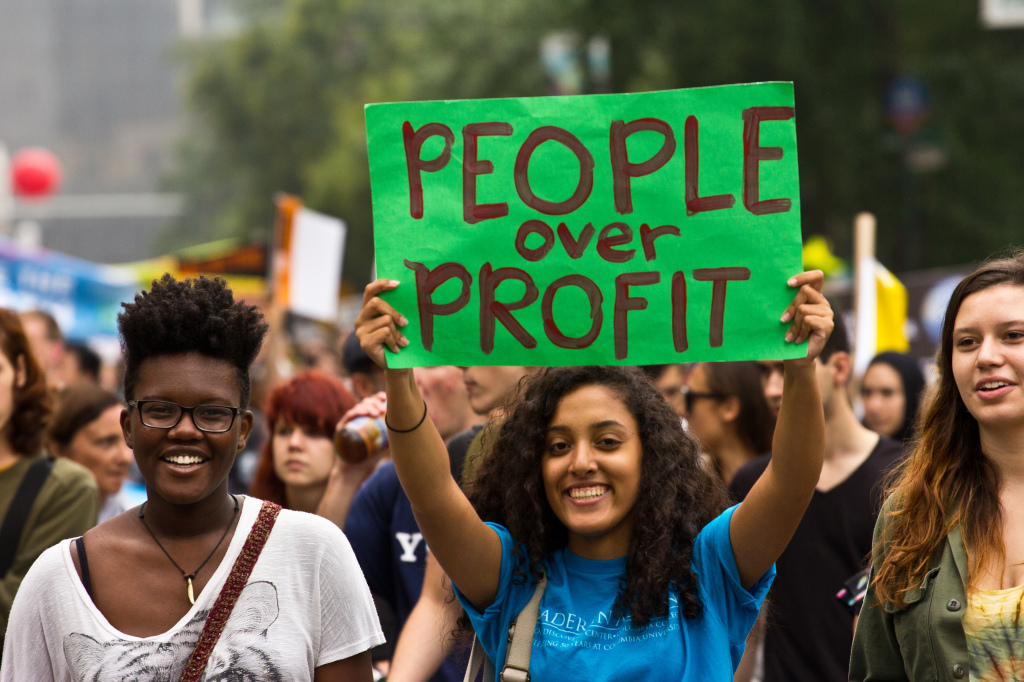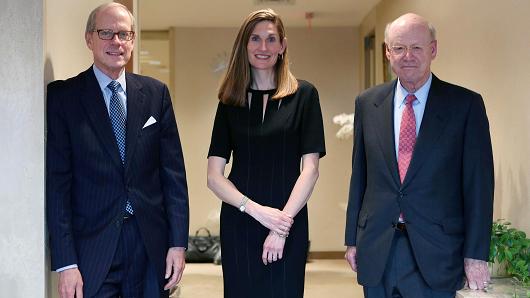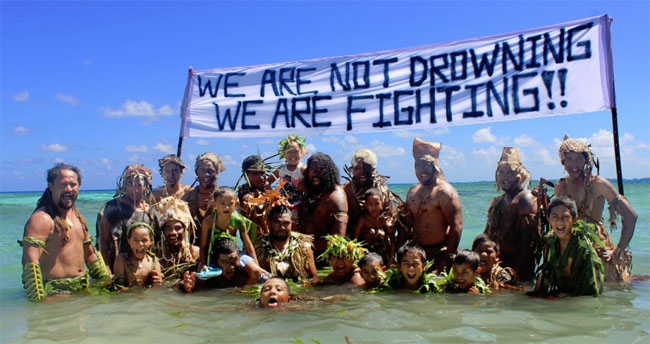350.org and its partners have called on people everywhere to take part in the first ever Global Divestment Day this coming February 13 and 14.
Already people in Europe,North America, Africa, Latin America, Oceania and Asia are planning how to take their fossil fuel divestment campaigning to a new level.
From mass actions in the world’s financial centres to sit-ins,vigils and banner drops at university campuses, community centres, churches, town halls and banks across the world, the pins on the Global Divestment Day actions map are multiplying rapidly.
Here’s why you should add your own event or action to the map as soon as possible:
1.It’s going to be a lot more effective than doing this:
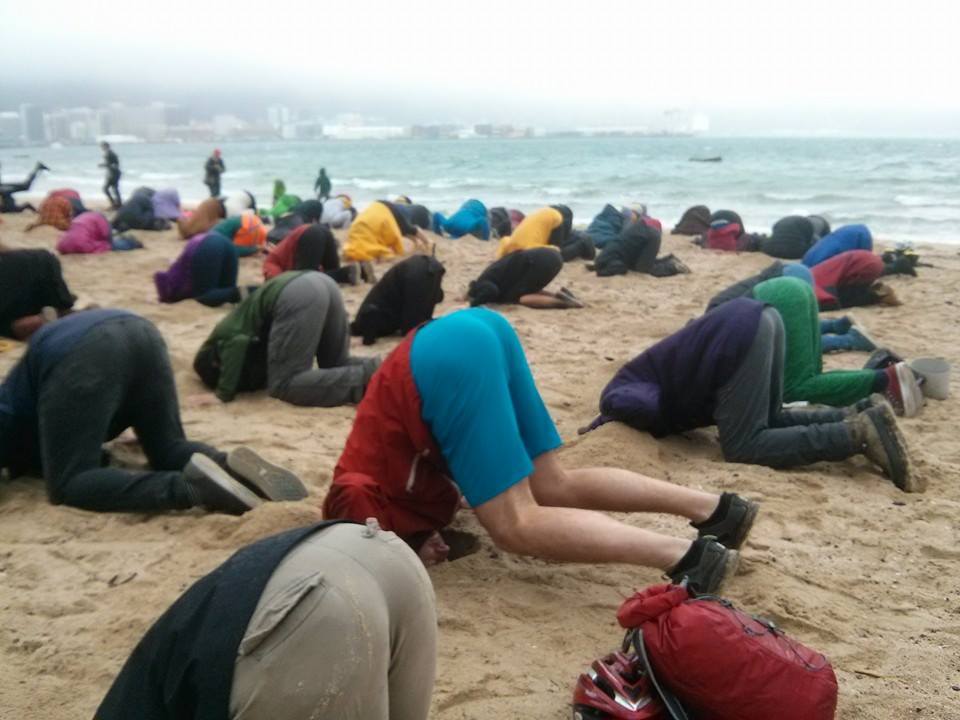
New Zealanders in Wellington last weekend urging their government to take much stronger climate action.
It’s what many of our governments are doing, in the hope that calls for strong climate action will evaporate. It won’t.
We know we have to leave 80% of known oil, coal and gas reserves underground – that’s around $28 trillion (Ed: yes,TRILLION) of revenue fossil fuel companies (and their investors) will never see. Yet our governments and institutions continue blindly investing and subsidising the industry they know is causing the climate crisis. Instead they could be investing in the transition to renewable alternatives we so desperately need. Let’s use Global Divestment Day to pull their heads out of the sand and open their eyes.
2. The Shells and Exxons of this world think the climate crisis is an acceptable cost of continuing to make billions in short-term profits.
“We need to temper our expectations of a zero-carbon future”
That’s what Shell’s Chief Executive Ben Van Beurden said in a speech recently, whilst in the same breath acknowledging the huge risks from climate change. Got that? There’s still demand for oil, coal and gas and money to be made so, ‘don’t hold your breath’. We’ve heard similar statements from all the oil majors like BP and Exxon in the last year too, confirming their plans to continue finding new fossil fuels and exploiting their reserves.
This is the sort of rogue capitalism and profit-at-any cost mentality which threatens the future of billions of people. Together, on 13 – 14 February, we must make a stand and expose the fossil fuel industry for what it really is, a rogue industry. In the words of Zeph Repollo, 350.org’s organiser in the Philippines:
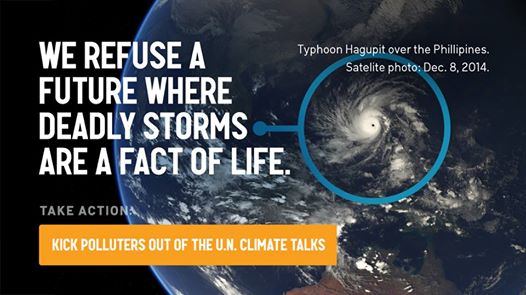
3.The fossil fuel industry is already running scared
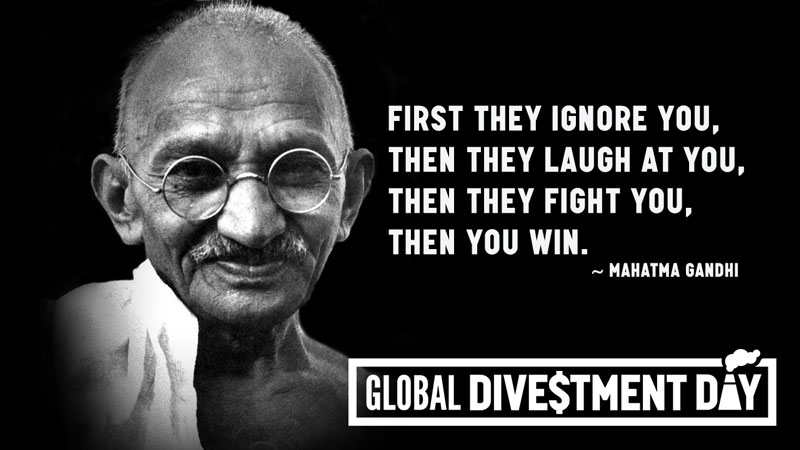
4. UN negotiations need a boost, before Paris 2015.
For the first time, climate negotiators in Lima this week are talking seriously about completely phasing out fossil fuels by mid-century. Global Divestment Day, starting on 13 February, coincides with the last formal climate negotiation meeting ahead of the crucial Paris summit where a global agreement must be signed. We need to ensure this sort of strong commitment isn’t relegated to the ‘what-might-have-been’ category.
Last September, over 700,000 of us took to the streets around the globe for the People’s Climate Mobilisation, with an unprecedented 400,000 in New York where the UN climate summit was taking place. We changed the conversation. Together, let’s show them the massive popular support for making fossil fuels history and building our future on clean, renewable energy sources.
5. Let’s face it, ‘divestment’ is the new buzzword.
In September, the Rockefeller family, who made their fortune from oil, announced that it was no longer morally acceptable or financially prudent to put their money in oil, gas and coal. And they’re not alone.
6. Anyone can take part, anywhere
Pacific warriors made headlines around the world in October when they used traditional canoes to block the world’s largest coal port. Their island nations are under direct threat from climate change but they are not drowning, they’re fighting. This month Marshall Islanders launched their own divestment campaign, and called on others to join them.
We can all embody that courage and spirit on Global Divestment Day. It’s time for us to take matters into our own hands.
The global divestment movement is weakening the political power of the fossil fuel industry and starting to break the climate deadlock to build the solutions the world needs. But to change everything we need everyone.
You might not have all the details figured out yet*, but if you want to join us and make fossil fuels history, please add an action to the Global Divestment Day map today.
* Over the coming weeks we’ll provide loads of materials, guidance and support, check out: https://globaldivestmentday.org
